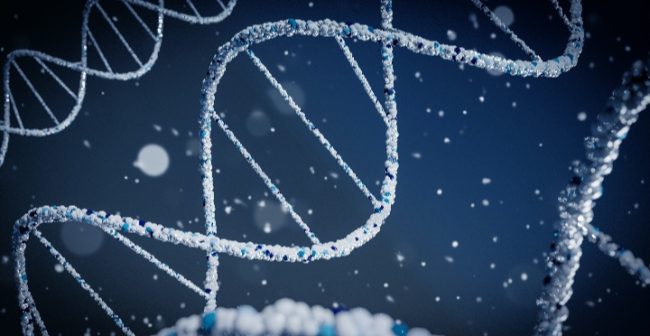Viral News
Mastering Molecular Biology: Student-Friendly Tips and Techniques
Mastering Molecular Biology: Student-Friendly Tips and Techniques
Molecular biology is a captivating and ever-evolving field that plays a pivotal role in understanding life at the cellular and molecular levels. For students embarking on their journey into the intricate world of molecular biology, the path can often seem overwhelming.
The field is challenging, complex, and rapidly changing. However, there are several resources and strategies that students can use to master molecular biology. In this article, we’ll discuss a few tips for students to set themselves up for success in the fast-growing field of molecular biology.
Building a Strong Foundation
Consider the following tips to build a robust foundation in this field:
- Start by mastering the basics, including cellular biology and genetics principles.
- Familiarize yourself with core techniques like PCR, gel electrophoresis, and DNA sequencing.
- Stay updated with the latest advancements in this fast-paced field by reading scientific journals and following reputable websites.
Also, utilize online resources, such as courses and tutorials, to reinforce your knowledge, ensuring a strong foundation for your journey into molecular biology. As per a Science Direct study, integrating digital technologies has become crucial for attaining this objective.
Tools like PPTs, video presentations, e-learning modalities, online training, and similar digital methods are progressively employed in the educational process.
A strategic mix of traditional and digital educational tools ensures a robust foundation for aspiring molecular biologists.
Effective Study Strategies
Once students have a strong foundation in the basic principles of molecular biology, they can proceed to develop effective study strategies. These strategies play a vital role in achieving academic success.
Utilize active learning techniques, such as creating concept maps and diagrams and practicing problems, as they outperform passive methods like extensive reading. Distribute your study time over several days rather than cramming the night before exams for better retention. Teaching someone else what you’ve learned is a powerful way to reinforce your understanding and benefit from their questions.
Also, don’t underestimate the value of short breaks during study sessions to maintain focus and enhance information retention. The Seren Foundation emphasizes the significance of purposeful breaks during study sessions. These brief interruptions, ranging from 5 to 60 minutes, are backed by research for their ability to rejuvenate the mind and body. It results in improved energy levels, productivity, and enhanced focus.
The data highlight the effectiveness of including short breaks and ineffective study strategies in achieving academic success.
The Nuts and Bolts of DNA and RNA
DNA and RNA are two of the most important molecules in biology. Understanding the core molecules of molecular biology, DNA and RNA, is essential before diving into its intricacies.
DNA serves as the genetic blueprint for constructing and sustaining all life forms. At the same time, RNA acts as a courier, conveying DNA’s instructions to ribosomes for protein synthesis.
DNA and RNA consist of four nucleotides, i.e., adenine (A), guanine (G), cytosine (C), and thymine (T) in DNA or uracil (U) in RNA. Nucleotides are arranged in a linear sequence in DNA and RNA molecules.
The sequence of nucleotides in DNA and RNA is what determines their function. Messenger RNA (mRNA) plays a particularly crucial role in protein formation. The nucleotide sequence in mRNA is determined by the nucleotide sequence in DNA. This process is called transcription. During transcription, an RNA polymerase enzyme copies the DNA sequence into a complementary RNA sequence.
According to Proprep, the transcription process involves six steps. It begins with the initiation of RNA polymerase at the DNA promoter region. The DNA unwinds, and the template strand is read to synthesize the mRNA sequence.
This sequence undergoes further processing in eukaryotes, including the addition of a 5′ cap and poly-A tail and the removal of introns. Finally, transcription links to translation, where codons on the mRNA dictate the amino acid sequence in proteins.
In molecular biology, these molecules are the backbone of life’s genetic code. For students, mastering DNA and RNA basics is key to uncovering cellular and genetic secrets.
Laboratory Techniques and Safety
Laboratory work involves the practical application of theoretical knowledge. It is here that you’ll apply various techniques to extract, analyze, and manipulate genetic material. However, it also has inherent risks, making safety a paramount concern.
Laboratory techniques encompass PCR, which amplifies DNA segments, demanding precision in reagent handling and temperature control. Gel electrophoresis separates DNA, requiring careful gel loading and voltage regulation. DNA sequencing necessitates accurate sample preparation, data interpretation, and machine operation.
Biological laboratories use a variety of hazardous chemicals and biological materials. Research conducted by the National Institute of Health highlighted a notably elevated safety risk in academic laboratories. According to the Occupational and Health Safety Administration (OHSA), academic labs pose an 11-fold greater safety hazard compared to the industrial sector.
It highlights the comparatively greater safety challenges in academic research environments.
Therefore, it is important for students to be aware of the potential hazards and to follow safety procedures to protect themselves and others. They should ensure safety using PPE like lab coats, gloves, and eye protection. Familiarize yourself with safety equipment locations, follow protocols when handling hazardous materials, and dispose of waste correctly.
Tools and Technologies
In molecular biology, several indispensable tools and technologies have revolutionized the field. Next-Generation Sequencing (NGS) enables high-throughput DNA and RNA sequencing, transforming genetic research. CRISPR-Cas9 Genome Editing offers precise gene modification with vast applications.
Advanced Fluorescence Microscopy provides precise visualization of cellular processes. Mass Spectrometry aids protein identification, while Bioinformatics Software handles data analysis and genome assembly in the age of expanding biological information.
Problem Solving and Data Analysis
This field is inherently a problem-solving discipline. As a student, developing strong problem-solving and data analysis skills is paramount for success in this field.
Mastering the biology of molecules requires a focus on key aspects like experimental design, data interpretation, troubleshooting, and critical thinking. Well-designed experiments with clear objectives and proper techniques are essential. Proficiency in data analysis and troubleshooting skills, along with critical thinking, enables innovative solutions in this complex field.
Resources for Further Learning
Students seeking further learning have a range of valuable resources at their disposal. Online communities offer a platform for questions and assistance from peers and professionals. Conferences and workshops on molecular biology are excellent for staying updated on the latest research and networking.
Internships offer hands-on learning with experienced scientists. Students can find these opportunities through professors or online job boards. Also, reading scientific articles, attending seminars, and conversing with molecular biologists can enhance understanding and knowledge in this dynamic field.
Utilizing these resources expands knowledge, hone skills, and keeps students engaged in the continually evolving domain of molecular biology.
Final Thoughts
In the pursuit of mastering molecular biology, you’ve embarked on a journey into the intricate world of genes, cells, and molecules. This discipline is both a challenge and an adventure, requiring dedication, curiosity, and the right tools.
Achieving mastery in molecular biology relies on a foundation of knowledge, genuine passion, unwavering perseverance, and an enduring dedication to lifelong learning. Molecular biology’s dynamic nature promises a lifelong journey filled with discoveries and valuable contributions to the world of science.




You must be logged in to post a comment logged in Login